Tribute to a great Lady

Ms Cecilia Eckelmann-Battistello
April 13, 1950 - March 6, 2024
The month of March, which usually offers in its first days the opportunity to celebrate women, has this year a sad taste. Indeed, on the 6th of March 2024, one of the most inspirational women in the maritime sector has gone.
I had the privilege of meeting Ms Eckelmann-Battistello in Hamburg on a couple of occasions and have always been aware of the great opportunity to exchange with her be it about the cargo handling sector, FEPORT’s agenda or other issues.
Ms Cecilia Eckelmann-Battistello has been a model for many professionals in the maritime sector. She has been for sure a role model for many women.
As many commentators pointed out, Ms Eckelmann-Battistello has brought colour and a new leadership style to the industry. She has been a successful businesswoman in times where very few women managed companies. She has been the managing director of Contship Containerlines for ten years and was recognised as a real leader in a male dominated industry.
In 1998, after the sale of Contship Containerlines to CP Ships, she resigned as Board Chairwoman and became President of Contship Italia.
Under her leadership, Contship developed both in ports and in logistics and became a major actor in the industry. In parallel, from 2005 to 2010, Ms Eckelmann-Battistello has been President of FEPORT and developed a real vision for the industry.
All FEPORT members who met her and worked with her unanimously praise her charisma and her tremendous efforts to promote the role of the cargo handling industry. “FEPORT family” expresses its deep sorrow and condolences to Mr Eckelmann and all the family. Ms Eckelmann-Battistello will be missed.
I would like to finish this tribute with a message that Ms Eckelmann-Battistello often shared when she was asked about women confronted to the “glass ceilings” and barriers in a male dominated industry: “I think it is women who feel inadequate in a man’s world more than men creating obstacles” she said. In other words, sky is the limit if women trust and impose themselves.
Thank you and Rest in Peace Ms Eckelmann-Battistello
Ms Lamia Kerdjoudj, FEPORT Secretary General
01.03.2024 – Working Document on the Commission's proposal on the Combined Transport Directive – Brussels
On the 1st of March 2024, MEP Salini, the rapporteur on the Combined Transport Directive, shared a Working Document regarding the Commission's proposal.
The working document emphasises the need to enhance the efficiency, competitiveness, and environmental benefits of combined transport in Europe.
The rapporteur recommends:
- Encouraging the use of combined transport as an efficient tool for the European transport sector in order to boost the competitiveness of European industries. This requires a realistic approach to promote the utilisation of combined transport.
- Reviewing and clarifying the proposed eligibility criteria which include a 40% threshold for reducing external costs. It is essential to provide a clear definition and transparent methodology to calculate external costs, ensuring a level playing field between different transport modes and enhancing the attractiveness of combined transport in the European market. Simplification and clarification will help avoiding uncertainties and administrative burdens, making combined transport a more attractive option for actors in the logistic chain.
- Offering additional incentives for combined transport operations achieving more than a 40% reduction in external costs, thereby further advancing the sustainability of the transport system.
- Ensuring that all Member States can guarantee at least a 10% reduction in the total costs of combined transport operations within their territories. Technical details on the calculation method for this 10% reduction would be beneficial in achieving this goal.
The working document of MEP Salini can be accessed here
06.03.2024 – Joint letter: Weights and Dimensions Directive – Brussels

On the 6th of March, several associations from the rail sector and beyond (CER, ERFA, UIRR, UIP, UNIFE, ETSC, Alpine Initiative, CIPRA International) have sent a joint letter to MEPs to express their concerns if the draft report of the Parliament is adopted without further amendments.
The letter reports a number of concerns regarding the approval of the proposed changes without further amendments:
- Incentivising fossil fuel vehicles: It is emphasised that the approval of the current proposal would encourage the cross-border circulation of 44-tonne trucks powered by internal combustion engines until 2035. This would be against emission reduction targets, especially considering that the transport sector continues to see an increase in emissions.
- Promoting the use of 'Gigaliners' or 'mega-trucks': the associations warn that approval of the proposal would encourage the use of 'Gigaliners', vehicles that are longer and heavier than standard trucks, without proper assessment of the impacts on road safety.
- Increasing the competitiveness gap between road and rail: It is pointed out that the promotion of the use of of 'Gigaliners' powered by internal combustion engines would favour road transport over rail transport, thereby obstructing efforts to promote intermodality and encouraging a return to road transport, with negative environmental and safety consequences.
- Road infrastructure degradation: the associations underline that the extensive use of 'Gigaliners' would lead to increased degradation of the road infrastructure, with the need for more frequent maintenance and increased road safety risks.
Read here the joint letter sent to MEPs.
07.03.2024 – SEArica final conference: Charting a course to a future EU Blue Deal – Brussels
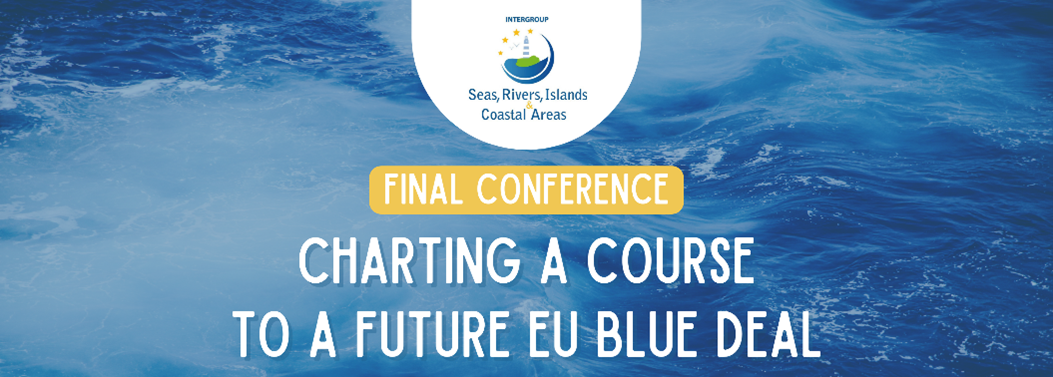
On the 7th of March, the SEArica Intergroup concluded its third mandate with a conference hosted by MEP Tonino Picula, Chair of SEArica. The conference aimed at reflecting on past maritime achievements and on the next generation of EU maritime policies. Over the past four years, the vital role of seas, rivers, islands and coastal areas has gained increased recognition in the EU actions to address the environmental, climate and energy crises.
During the debate, MEP Oetjen (Renew) underlined the pivotal role played by ports in the decarbonisation of the maritime sector, calling on the next Parliament and the next Commission to emphasise the role of ports as green hubs.
MEP Cutajar expressed her concerns about the EU Emissions Trading System (ETS), urging collaborative efforts to address carbon leakage impacting EU ports, particularly in southern and outermost regions. MEP Cutajar also emphasised the necessity for increased funding directed towards SMEs to facilitate their adaptation to digitalisation and to support the upskilling and reskilling of the workforce.
Finally, MEP Chabaud (Renew) focused on the competitiveness of EU manufacturing in the maritime sector, stressing the imperative of innovation and strategic policymaking to uphold Europe's global standing.
07.03.2024 – Europol and EMCDDA publish “EU Drug Markets: Key insights for policy and practice”

On the 7th of March, Europol and the European Monitoring Centre for Drugs and Drug Addiction (EMCDDA) released a report delving into the illicit drug market controlled by criminal networks, which represents a serious security threat to the European Union. The report highlights the main areas for action at EU and Member State level to counter the current threats related to the drug market.
The EU retail drug market is estimated to be worth over €30 billion per year, making it a major source of income for organised crime. A critical aspect of the threat from drug markets lies in the exploitation of key logistical infrastructure, particularly seaports. Criminal networks infiltrate these nodes of trade and transport, turning them into conduits for unprecedented drug flows.
Moreover, the EU drug market is also interconnected with other criminal areas, such as the firearms trafficking and money laundering ones. Some EU Member States are currently experiencing unprecedented levels of drug market-related violence, including murder, torture, kidnappings and intimidation. This threat is exacerbated by the adaptability, innovation and resilience of criminal networks operating in the EU drug market, which remain insensitive to global crises, geopolitical upheavals and significant economic fluctuations, exemplified by events such as the Covid-19 pandemic and Russia's aggression against Ukraine.
In light of these pressing challenges, the report provides recommendations regarding actions aimed at mitigating current threats and enhancing preparedness. These suggestions include improving monitoring and analysis of drug market-related violence, further prioritising operational activities that dismantle criminal networks, boosting international cooperation, increasing the human and financial resources devoted to operational and strategic response and strengthening policy, public health and safety responses, among others.
Read here the full report.
12.03.2024 – FEPORT Secretary General participates to Transport week conference – Gdynia
On March 12, 2024, FEPORT Secretary General Ms Lamia Kerdjoudj participated to the Transport Week conference held in Gdynia. The well attended event gathered expert speakers who tackled topics that shape the current state of the transport sector, from geopolitics to market analysis and infrastructure development.
FEPORT Secretary General shared the stage with Ms Isabelle Ryckbost, Secretary General of ESPO and Mr Michael Litwin, Board member of ERFA. The panel discussion focussed on the role of transport organisations in Brussels and their dialogue with the EU institutions.
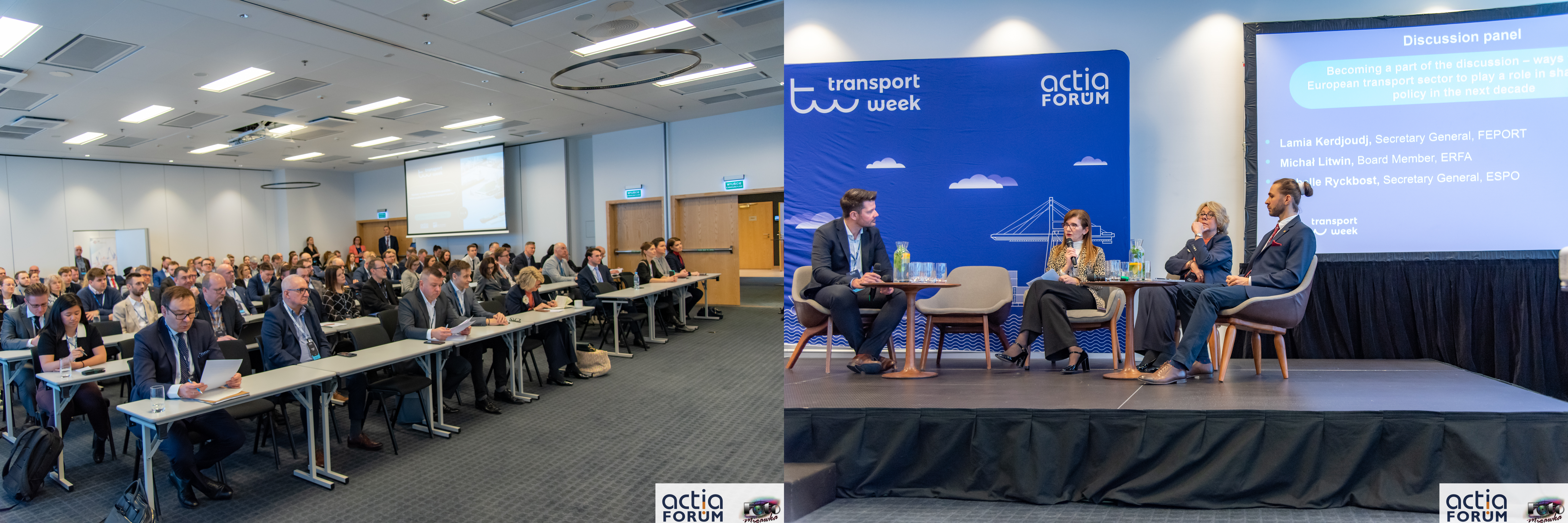
Answering a question regarding the efficiency of the lobbying actions undertaken by FEPORT in Brussels, Ms Kerdjoudj, reminded the audience that public affairs entails an obligation of “means” and not of results as policy makers keep the freedom to decide what the best option for the general interest is.
FEPORT is satisfied by the constructive dialogue with EU policy makers as on many pieces of legislation, the different institutional stakeholders have been actively listening and understanding the need to preserve the competitive advantage of EU industries. The only file which has been difficult for all port associations has been ETS maritime as the impact assessment has not evaluated all aspects related to the risks of carbon and business leakage and this is a pity. The conversation with the EU Commission is nevertheless continuing to find solutions that preserve the competitiveness of EU ports.
On the tools that are used by trade associations to influence policy makers, FEPORT Secretary General, Ms Lamia Kerdjoudj indicated that a successful organisation is an organisation which is recognised as an expertise provider (technical papers, briefings etc..) in “peace times” i.e. when no legislative proposal is on the table for discussion yet by institutional stakeholders. In “war times” i.e. when different and sometimes diverging interests are at stake when a text is discussed, things are always more difficult.
13.03.2024 – European Parliament adopts position on Customs Reform – Strasbourg
On the 13th of March, at its plenary session in Strasbourg, the European Parliament adopted its position on the reform of the EU Customs Code on which the Commission issued a proposal in May last year.
Parliament’s first reading position was adopted with 486 votes in favour, 19 votes against and 97 abstentions.
FEPORT supports the general direction of the Customs reform proposal as it aims at simplifying procedures for trusted operators while further enhancing and harmonising risk management practices.
We therefore welcome the close to unanimous adoption by Parliament of its position, in particular as the EP voted to restore the time limit for temporary storage to 90 days. This time limit is necessary to prevent unnecessary administrative and operational costs, allow for a seamless functioning of port operations and logistics chains, while ensuring that ports in the EU remain competitive.
Terminal operators however still have feedback about some of the requirements that the reform proposal imposes on customs warehouse operators. In case the Commission proposal to reduce the time limit for temporary storage to 3-6 days would enter into force without modifications, all terminal operators will take on the role of customs warehouse operators.
13.03.2024 – EU’s waterborne transport sector issues Joint Declaration, charting the course towards a resilient, competitive and sustainable future - Brussels
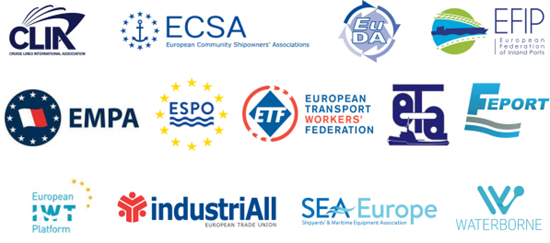
The Joint Declaration, signed by 13 European Associations, calls for a coordinated effort between public and private sector actors, with resilience, competitiveness and level playing field as corner stones.
The EU’s waterborne transport sector is dynamic, featuring a diverse array of public and private stakeholders. This includes maritime and inland waterways shipowners and operators, shipyards, equipment manufacturers, ports and terminals along with public and private infrastructure and service providers, universities, research institutes and social partners. Each of these actors play a pivotal role by contributing their expertise and resources. At the core of the sector is its dedicated workforce, whose contributions are crucial both on board vessels and on land, underlining the waterborne transport sector’s vital role in the EU economy and society.
The sector is critical for Europe’s trade and economy, handling nearly 90% of international trade, with 81% of the EU’s external trade and 40% of its internal trade being carried by maritime shipping, and 6% of the EU carriage of goods by inland waterway transport. The sector is actively engaged and making significant investments to ensure it remains a worldwide frontrunner, embracing and facilitating the green and digital transformations. In addition, the sector plays a key role towards reinforcing the EU’s resilience in terms of trade, security, defence, energy supply and sustainability, thus being an enabler of the transition towards sustainable energy while safeguarding strategic resilience and a robust supply chain.
To effectively fulfil these roles, the waterborne transport sector must remain competitive. This requires possessing the required human and industrial capacity to foster innovative solutions. The aim is to become even more sustainable and environmentally friendly, focus on human centric approaches, integrate digital technologies effectively and enhance overall resilience. It is imperative for the sector to uphold this position especially in the face of challenges such as absence of level playing field, regulatory uncertainty and increasing competition from third countries.
Therefore, a coordinated effort between public and the private sector actors at the European level is urgently required, with resilience, competitiveness and level playing field as the corner stones. This collaboration is essential to secure a prosperous future of this strategic sector for Europe.
Eero Lehtovaara, Chair of the Board of Directors, Waterborne TP, said: “This joint declaration signed by 13 European Associations showcases the strength of cooperation between the different segments of the sector, and the commitments to the green and digital transition. However, it also clearly shows the vulnerability of the waterborne transport sector, which is of strategic importance to the EU. During the past couple of years, the public and private side have focused and invested in, for example, the transition to a zero-emission mode of transport. During this process, it has become clear that further coordination between the private and public stakeholders is urgently needed, to ensure the resilience, competitiveness and level playing field of the sector. This cooperation will also define the research priorities of the sector for the future, which we will implement as part of our long-term strategy.”
14-15.03.2024 – Net Zero Ports & Harbours Conference - Barcelona
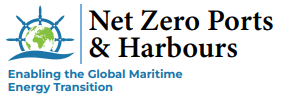
On the 14th of March, Mr. Maarten Boot, Policy Advisor at FEPORT, participated online and provided a presentation at the Net Zero Ports & Harbours Conference which was held in Barcelona at the H10 Casanova Hotel in Barcelona, and organised by Future Bridge.

Presentations and panels during the conference focussed on topics such as the rollout of green infrastructure for recharging and clean fuels, as well as the development of green shipping corridors.
Mr. Boot’s presentation focussed on the challenges and opportunities terminal operators are facing when implementing EU environmental and climate legislation such as FuelEU, EU ETS and AFIR. On the one hand, these pieces of legislation can be expected to be a real driver of the greening of ports as they will mandate the rollout of green refuelling and recharging infrastructure and its usage by calling ships (FuelEU and AFIR), while stimulating maritime shipping to green its operations at sea and at berth (FuelEU and EU ETS).
When implementing these pieces of legislation, however, it is crucial to ensure a harmonised implementation so as to maintain a level playing field between ports in the EU. Also, the competitive position of ports within the EU must be carefully considered, since EU ETS and FuelEU impose costs on shipping companies when calling at EU ports which can be (partially) avoided when they reconfigure their routes in favour of non-EU ports.
Ms. Anaëlle Boudry, Senior Policy Advisor for Sustainable Development Energy and Blue Growth at European Sea Ports Organisation (ESPO) provided the closing address of the first day of the conference, highlighting the main challenges and opportunities ports encounter in face of the energy transition.
Her presentation in particular focussed on the need for developing resilient and adaptable port infrastructure as well as stakeholder collaboration, underscoring the need for collective actions to ensure the maritime sector’s sustainable future.
15.03.2024 – European Port Forum and sustainable ports subgroup – Brussels
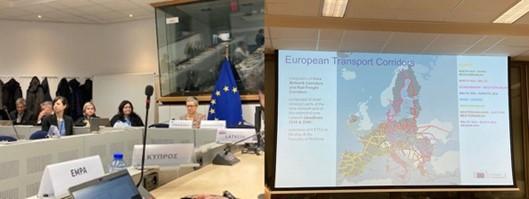
FEPORT was among the organisations which participated in the 7th meeting of the European Port Forum held on the 15th of March 2024 in the morning.
Before inviting participants to debate about the priorities for the next Commission regarding the maritime sector, the EU Commission informed EPF members that digitalisation and Green Deal initiatives will remain high on the agenda, with an emphasis on enhancing competitiveness in a multipolar world. Issues such as security, resilience, and affordability remain central, requiring a just and fair transformation for all stakeholders involved.
The European Port Strategy was highlighted as critical, particularly in preparation for the next Multiannual Financial Framework (MFF)However, it was noted that the budget would face significant pressures due to various challenges, including the ongoing situation in Ukraine and heightened defence spending.
Another item on the agenda was the Revision of Trans-European Transport Network (TEN-T) Regulation. The Commission provided an update on the revision of the legislation, emphasising that sustainability, efficiency, cohesion, and user benefits as core objectives. Key features of the revised TEN-T include a phased approach to network completion, reinforced infrastructure standards, and enhanced governance mechanisms.
Funding aspects for maritime ports were also discussed. The Commission presented the Connecting Europe Facilities (CEF) 2, highlighting its policy objectives and budget allocation for the period 2021-2027.
The morning session of the European Port Forum was followed by a meeting of the Sustainable Ports Subgroup.
Items discussed during the subgroup meeting included the implementation of FuelEU Maritime and AFIR as well as a presentation by EOPSA on the business case for Onshore Power Supply.
DG CLIMA provided a detailed presentation on EU ETS and how the Commission intends to monitor risks of carbon and business leakage.
15.03.2024 – ALICE’s initiative to encourage women’s participation in logistics
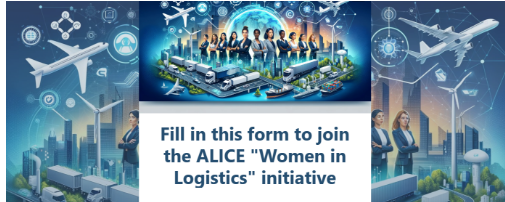
The Alliance for Logistics Innovation through Collaboration in Europe (ALICE) has launched an initiative on 'Women in Logistics', aimed at promoting the participation of women in the logistics sector.
The key points of the initiative are as follows:
- Objectives of the initiative: The main objective is to increase the participation of women in the logistics sector, where figures are currently not considered high enough. ALICE wishes to change this trend through this initiative.
- Networking and mentorship opportunities: An attempt is made to establish a strong network of female logistics professionals to facilitate mentorship, sponsorship and peer support. This will enable members to share knowledge, experience and best practices.
- Visibility and Recognition: ALICE plans to organise webinars, workshops and other initiatives that highlight the achievements of women in the logistics sector. The aim is to increase the visibility of women and inspire others within the industry.
- Representation in leadership: The initiative aims to increase the presence of women in leadership positions within logistics. This will be done by setting targets and developing clear paths for professional advancement.
- Knowledge sharing: Workshops, webinars and other opportunities will be organised to share challenges and opportunities for women in logistics. There will also be case studies and success stories to raise awareness and inform organisational strategies.
20.03.2024 – EP TRAN discusses the Combined Transport Directive – Brussels
During the TRAN Committee, on March 20th, the exchange of views with Commission representatives focused on the proposed amendments to the Combined Transport Directive (92/106/EEC). Throughout the discussion, each part emphasised the pivotal role of intermodal transport in advancing the sustainability of freight logistics, with hopes for timely adoption of the report by the next legislature.
- MEP Salini (EPP), rapporteur for the Directive, stressed the need for clarity on the 40% criterion for reducing external costs. He highlighted the transport sector's need for transparency regarding the origin and calculation methodology of this figure, stressing that uncertainty should be avoided. Furthermore, concerns were raised regarding the accessibility of the proposed digital platform and the comprehensibility of cost recommendations. On harmonisation efforts, MEP Salini pointed to inconsistencies in the Commission proposal, particularly with regard to the incomprehensibility of cost recommendations. He emphasised the importance of avoiding disparities and announced his intention to present an alternative proposal to ensure effective harmonisation without increasing existing gaps.
- MEP Rudner (S&D), one of the shadows, supported the proposal, but emphasised the need to address the outstanding issues, in particular the ambiguous 40% criterion, and to support stricter rules against price dumping.
- The European Economic and Social Committee (EESC) supported the revision of the directive, stressing the importance of intermodality, while noting the challenges limiting the competitiveness of intermodal transport, such as administrative obstacles and transport costs, especially for shorter distances. The EESC welcomed the proposal’s provisions on short sea shipping for its potential to reduce emissions.
- The Commission recognised the limitations of eligibility criteria based on distance and emphasised the need for a graduated approach to incentivise greener practices. Transparency in external cost calculations was underlined, especially with regard to the 40% criterion.
- MEP Salini concluded by recognising the progress made, but emphasised the need for continued improvement, particularly with regard to the 40% criterion. In the end, the Directive aims to balance the greening of freight transport with maintaining competitiveness in the global market.
21.03.2024 – Women in Transport meeting – Brussels
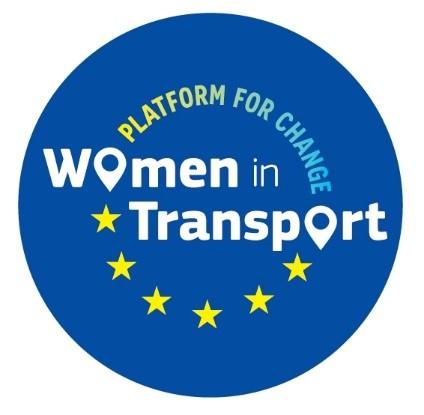
On the 21st of March, FEPORT participated to the “Women in Transport” meeting, organised by the Commission. The meeting saw several speakers sharing insights, among them Ms Ellen Durst from DG MOVE, who discussed the action plan presented by the Commission on the 20th of March, aimed at addressing labour and skill shortages across industries, not limited to transportation. This plan aligns with the EU's broader strategy to boost competitiveness and resilience, following up on discussions from the Val Duchesse summit with social partners.
The action plan outlines five areas of focus:
- Supporting underrepresented people to enter the labour market;
- Providing support for skills development, training and education;
- Improving working conditions in certain sectors (transport is also mentioned);
- Fair intra-EU mobility for workers and learners;
- Attracting talents from outside the EU.
The primary objective is to analyse the labour market's current state and outline forthcoming efforts, including those from social partners. For example, the, social partners intend to:
- address poor working conditions through collective bargaining in the sectors characterised by inadequate working conditions;
- help to activate underrepresented groups and find adapted solutions to promote the employment of older workers;
- support apprenticeships, and partnerships between vocational education and training (VET) providers and employers;
- contribute with their expertise to setting up the EU Talent Pool to attract talent from third countries.
Moreover, Ms Elpi Petraki from Women International Shipping and Trading Association (WISTA), highlighted outcomes from the Conference on the Wellbeing of Seafarers. She emphasised the need of making the maritime sector more attractive – especially to women – while ensuring workers are quipped to safely utilise new technologies. Ms Petraki also stressed the issue of enhancing the wellbeing of seafarers. In particular, all vessels should be provided with good connectivity, given seafarers' prolonged periods away from home, and advocated for ensuring a safe environment for all onboard.
Member’s News Corner
29.02.2024 – YILPORT pioneers eco-friendly container port innovation - Oslo
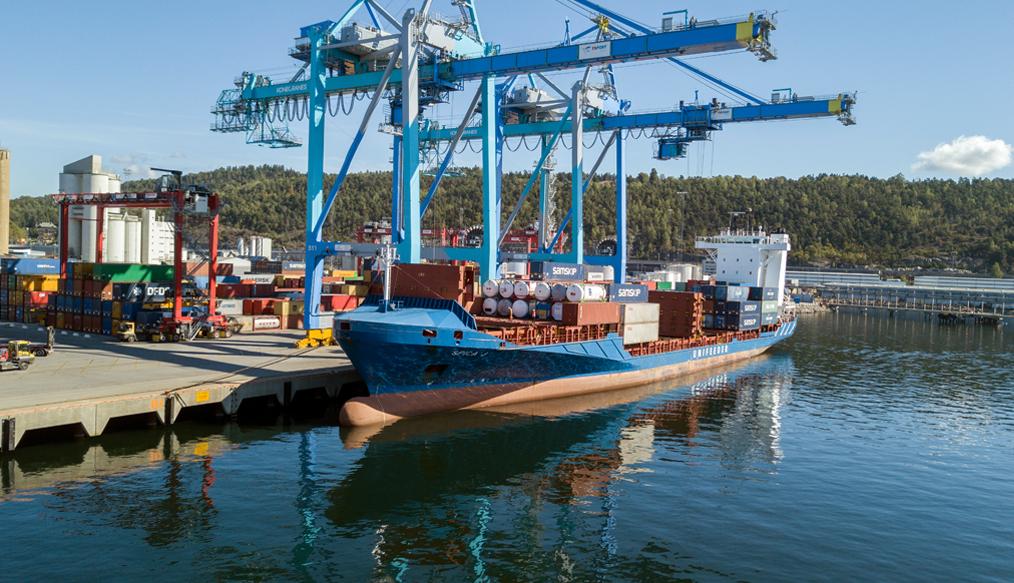
YILPORT Oslo is the first zero-emission container port, prioritising eco-compatibility. Thanks to strategic initiatives such as electrical equipment and renewable energy supply, CO2 emissions are minimised.
YILPORT Oslo is the pioneer in efforts to shift freight transport from road to sea. This not only reduces congestion and emissions, but also emphasises the port's important role in preserving the environment.
Source: YILPORT website
20.03.2024 – EUROGATE implements fully digital verification of truck drivers – Hamburg
EUROGATE Container Terminal Hamburg (CTH) is adopting CONROO’s GATE PASS solution to digitalise truck driver verification, to enhance efficiency and security across its terminals.
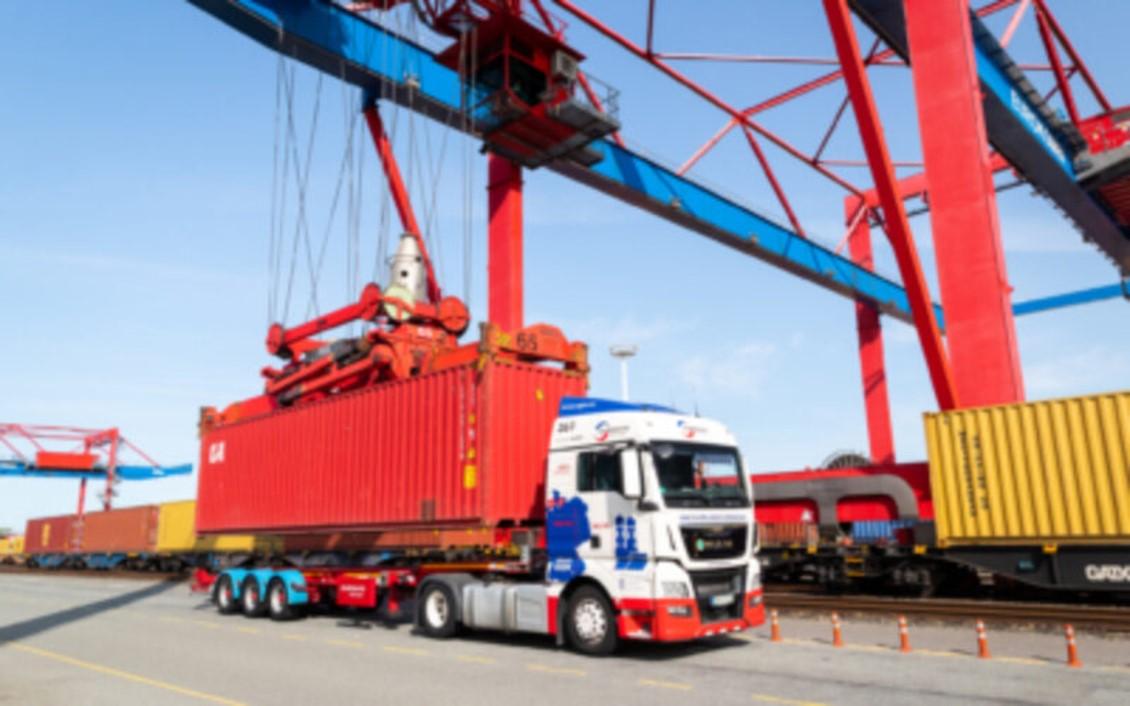
Developed in collaboration with EUROGATE, GATE PASS will replace the previous analogue "Trucker Card" system at EUROGATE Hamburg from the 2nd of May 2024, followed by Bremerhaven, Wilhelmshaven, and other international locations.
The mobile application simplifies registration, driver verification, tour planning, and on-site instructions, integrating with various logistics stakeholders. By eliminating paper-based processes, GATE PASS reduces queues, wait times, and the need for drivers to leave their trucks during loading, thus enhancing security. CONROO, acting as an independent partner, will gradually roll out GATE PASS across EUROGATE's German terminals starting in spring 2024.
Source: EUROGATE website
Events supported by FEPORT
02/05.04.2023 - Connecting Europe days 2024 - Brussels

11.04.2024 - Port and terminal seminar - Rotterdam

11-13.06.2024 - TOC Europe 2024 – Rotterdam
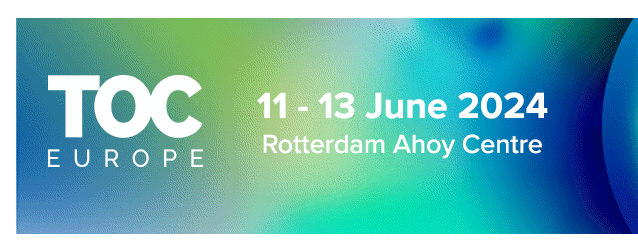
FEPORT meetings
11.04.2024 Board of Directors - Brussels
14.05.2024 Environment, Safety and Security Committee - Brussels
30.05.2024 Port Policy Committee – Antwerp
30-31.05.2024 General Assembly meeting - Antwerp
04.06.2024 Customs and Logistics Committee - Brussels
11.06.2024 Social Affairs Committee – Brussels
09.09.2024 Customs and Logistics Committee - Brussels
10.09.2024 Environment, Safety and Security Committee - Brussels
19.09.2024 Port Policy Committee – Brussels
26.09.2024 Board of Directors - Brussels
17.10.2024 Social Affairs Committee – Brussels
27.11.2024 General Assembly Meeting – Brussels
28.11.2024 FEPORT Eighth Annual Stakeholders’ Conference – Brussels
Parliament meetings
03-04.04.2024 EMPL Committee Meeting - Brussels
08-09.04.2024 TRAN Committee Meeting - Brussels
08-09.04.2024 ITRE Committee Meeting – Brussels
09.04.2024 ENVI Committee Meeting – Brussels
09.04.2024 INTA Committee Meeting – Brussels
Council of the EU meetings
03.04.2024 TTE Council – Brussels
11.04.2024 TTE Council – Brussels
17.06.2024 ENV Council – Brussels
FEPORT Newsletter - March 2024













